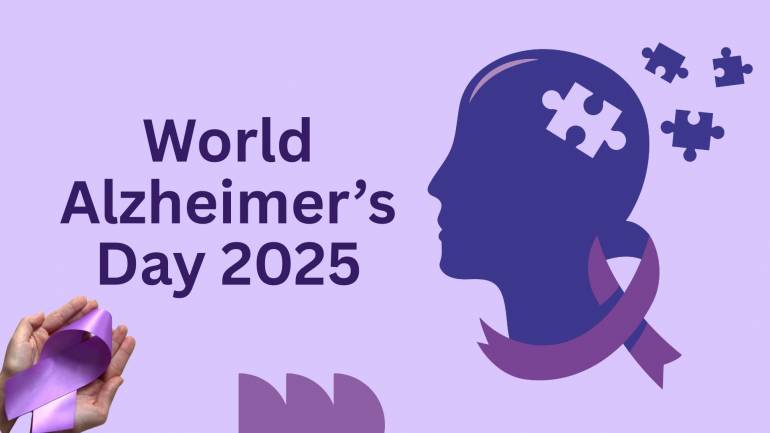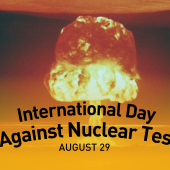Holding On to Memory: A Catholic Reflection on Alzheimer’s

World Alzheimer’s Day, marked annually on September 21, is dedicated to raising awareness about a disease that now affects more than 55 million people worldwide. By 2050, the numbers are expected to triple globally, with Asia alone projected to have 71 million cases. India, where around 4 million were affected in 2019, could see that figure triple, making it second only to China.
Alzheimer’s disease is a form of dementia that impairs memory and daily functioning, accounting for up to 80% of dementia cases. It was first identified in 1901 by German psychiatrist Alois Alzheimer, after whom the condition is named. The disease is devastating not only for patients but also for their families. It has no cure, no proven prevention, and not even a treatment to slow its progression.
Personal Encounters with Alzheimer’s
Until recently, I only associated Alzheimer’s with old age and memory loss. But three experiences brought me painfully close to its reality.
Experience 1: A beloved relative who once cared for me during my student years is now in her seventies, living in a dementia care home. Once elegant and meticulous, she is now frail, repeating questions in endless loops. Her family visits weekly, but the decline, mental and physical, is relentless. The burden on them, and on caregivers who must manage her mood swings, is immense.
Experience 2: Earlier this year, I attended the funeral of a nonagenarian. His wife, long afflicted by Alzheimer’s, had relied on him and a small team of caregivers. Now widowed, she forgets every day that he has died, and each time she is told, she breaks down in tears, as though experiencing his loss anew.
Experience 3: My godmother, in her early eighties, also lives with Alzheimer’s. During a visit, she seemed perfectly lucid as we reminisced over dinner. But as I left, her son whispered, “Tomorrow, she won’t remember you came.”
These encounters drove home the painful truth: Alzheimer’s is not only a medical condition but a cross carried by entire families. The emotional, financial, and spiritual strain is overwhelming.
The Catholic Response
One of the most remarkable scientific studies on Alzheimer’s was carried out with the School Sisters of Notre Dame in the U.S., who volunteered their lives, and even their brains after death, for a three-decade research project. Known as the Nun Study, it has provided invaluable insights into ageing and dementia. These sisters embodied what Pope Francis once said: Alzheimer’s affects not just individuals but entire communities, pushing people to the margins of society. “Let us pray for those suffering from Alzheimer’s, for their families, and for those who lovingly care for them,” the Pope urged in 2002.
As Catholics, when a loved one loses memory and even the ability to pray, we hold on to the truth that God remembers us even when we forget Him: “I will not forget you. See, I have engraved you on the palms of my hands.” (Isaiah 49:15–16)
The Church is founded on memory. Israel’s story was built on remembering God’s covenant. Early saints like Francis of Assisi internalized Scripture because written Bibles were rare. Today, digital screens in churches display prayers and the Creed, making it easy to read but harder to memorize. Yet the Eucharist itself is a memorial, and memory anchors our faith. Should we not encourage deeper engagement, training our memories rather than outsourcing them to screens?
Memory is more than mental recall; it is the lifeblood of faith. To forget is human, but to remember on behalf of those who cannot is an act of love.
Love Without Escape
The English writer H.G. Wells once told of a hidden Andean valley where a disease rendered an entire community blind. An explorer stumbled upon them, fell in love with a woman, but was told he must also lose his sight to marry her. He chose to flee rather than surrender his vision.
Families of Alzheimer’s patients do not have that option. They cannot escape. They must stay, watching their loved one fade, bearing pain that only deepens with time. Yet in this steadfastness lies a profound love, perhaps the greatest love one can witness.
Hope for Caregivers
To those caring for loved ones with Alzheimer’s: you are not alone. Scripture assures us, “The Lord your God will remember His covenant with you, and His promise will never be forgotten.” (Deut. 7:9) Even when memory is stripped away, God’s covenant endures.
The poet Elizabeth Stevens, in her piece Slow Work, offers words of encouragement to caregivers:
“Celebrate the progress,
the triumphs.
Celebrate also the heartbreaking almost.
Breathe.
Rest for a time.
Then get up and turn again toward kindness,
toward your neighbor in need…
Tell them, ‘I won’t give up.
I am with you.’
Until the mountain crumbles to dust.”
This is the vocation of caregivers: a daily act of remembering, loving, and holding fast when memory fails.
Alzheimer’s disease is a thief of memory, but it cannot steal love, dignity, or God’s faithfulness. As families walk this painful road, they are living witnesses of Christ’s words: “Greater love has no one than this: to lay down one’s life for one’s friends.” (John 15:13)
On this World Alzheimer’s Day, let us remember the forgotten, pray for caregivers, and commit ourselves to a culture of memory, memory that sustains faith, nurtures hope, and embodies love.
(Tom Thomas, a Catholic entrepreneur and writer based in Bangalore, South India, contributes articles to Catholic magazines and media platforms, both in India and abroad.)
Radio Veritas Asia (RVA), a media platform of the Catholic Church, aims to share Christ. RVA started in 1969 as a continental Catholic radio station to serve Asian countries in their respective local language, thus earning the tag “the Voice of Asian Christianity.” Responding to the emerging context, RVA embraced media platforms to connect with the global Asian audience via its 21 language websites and various social media platforms.











